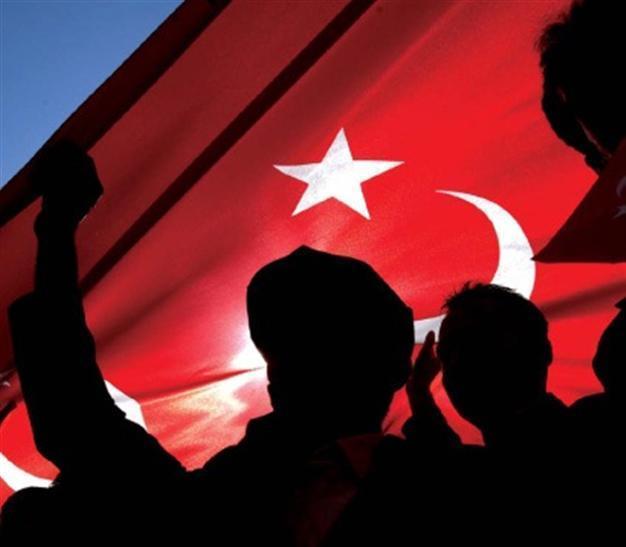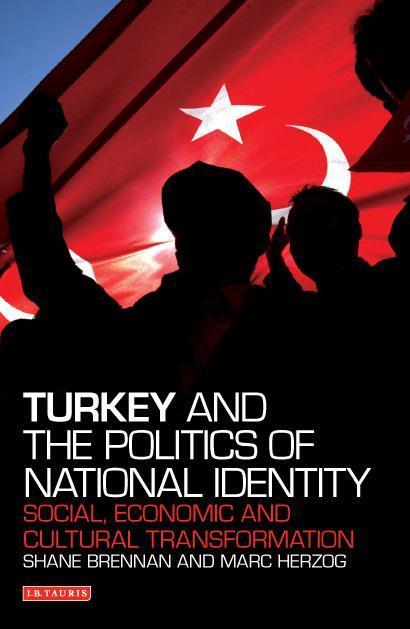Turkey and the politics of national identity
William Armstrong - william.armstrong@hdn.com.tr
 ‘Turkey and the Politics of National Identity: Social, Economic and Cultural Transformation’ edited by Shane Brennan and Marc Herzog (I.B. Tauris, 315 pages, £62)
‘Turkey and the Politics of National Identity: Social, Economic and Cultural Transformation’ edited by Shane Brennan and Marc Herzog (I.B. Tauris, 315 pages, £62)Turkish politics have been motored by questions of identity ever since the military coup of Sept. 12, 1980. While it has always been important, after 1980 - and particularly after the end of the Cold War 10 years later - cultural identity became the primary reference point of political activity in Turkey. Islamism, Kurdish nationalism, and hardened Kemalism increasingly came to define the battle lines, which remained rigid despite the coming and going of political parties.
 This tendency is not limited to Turkey. Paradoxically, new communication technologies and the acceleration of globalization have led people to embrace individualism and to reach out to new group identities - in both developed and developing countries. While economic integration has been promoted, a sense has intensified among many of being besieged by “foreigners” with hostile values. Conservatism and globalization have operated in a symbiotic relationship - the breaking down of physical and psychological borders prompted a reaction from circles uneasy with the uncontrollable forces unleashed. One of the big ironies is that conservative traditionalists have largely supported the economic policies that led to those threatening consequences.
This tendency is not limited to Turkey. Paradoxically, new communication technologies and the acceleration of globalization have led people to embrace individualism and to reach out to new group identities - in both developed and developing countries. While economic integration has been promoted, a sense has intensified among many of being besieged by “foreigners” with hostile values. Conservatism and globalization have operated in a symbiotic relationship - the breaking down of physical and psychological borders prompted a reaction from circles uneasy with the uncontrollable forces unleashed. One of the big ironies is that conservative traditionalists have largely supported the economic policies that led to those threatening consequences.Turkey is a fascinating case of these forces at work. Much has been made of its rapid economic growth of the past decade, but in truth that growth story has not been much more remarkable than the performance of other emerging markets. What has changed, however, is the perception both domestically and abroad of Turkey’s place in the world. The country has reasserted itself in the region amid the broader post-Cold War rise of multiple power centers. These shifting external conditions triggered and coincided with rapid domestic changes, creating a bewildering, combustible cocktail.
“Turkey and the Politics of National Identity,” a volume of 11 essays by local and foreign academics, journalists, and other pointy-heads, tries to put these dynamics under the spotlight. Although the title may be unimaginative, the book itself takes in a dizzying array of considerations - from foreign policy to the position of women, from the emergence of politicized minority identities to literary trends, from urban migration to new archeological practices. Unfortunately, the book is unable to knit these big subjects into a cohesive whole, and without a more rigorous editing process it lacks a unifying thread. The quality of the contributions is also highly variable; taken as a whole the volume ultimately does little more than scratch the surface of such a broad canvas: A stale potpourri rather than a rich smorgasbord.
In Turkey, the surface tumult of national politics usually obscures the socio-economic tendencies that will be more significant in the long run. “Turkey is a fast developing and at the same time changing country. It is comparatively young and full political and economic stability has yet to be achieved,” editor Marc Herzog writes in the introduction to this book:
Under these circumstances ethnic, religious and nationalistic forms of identity can offer crucial means of psychological support. In the last 10-15 years, both Islamic conservatism and Turkish nationalism have been growing in the sphere of identity politics … The increasingly diverse character of Turkey’s society and its media has meant that no single narrative on identity can escape challenges or counter-narratives.
To religious conservatism and Turkish nationalism we could add the identity-consciousness of the “Gezi” protesters and increasingly visible Kurdish nationalism. To use the interminable cliché, today’s Turkey is indeed at a crossroads. But there are many better guides to where it may turn than this unsatisfying book.










